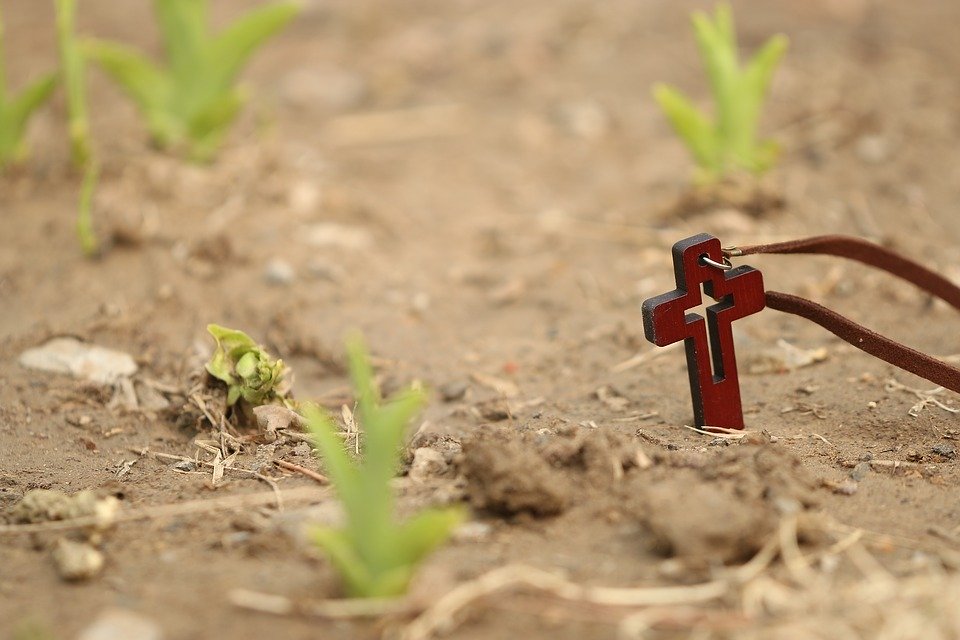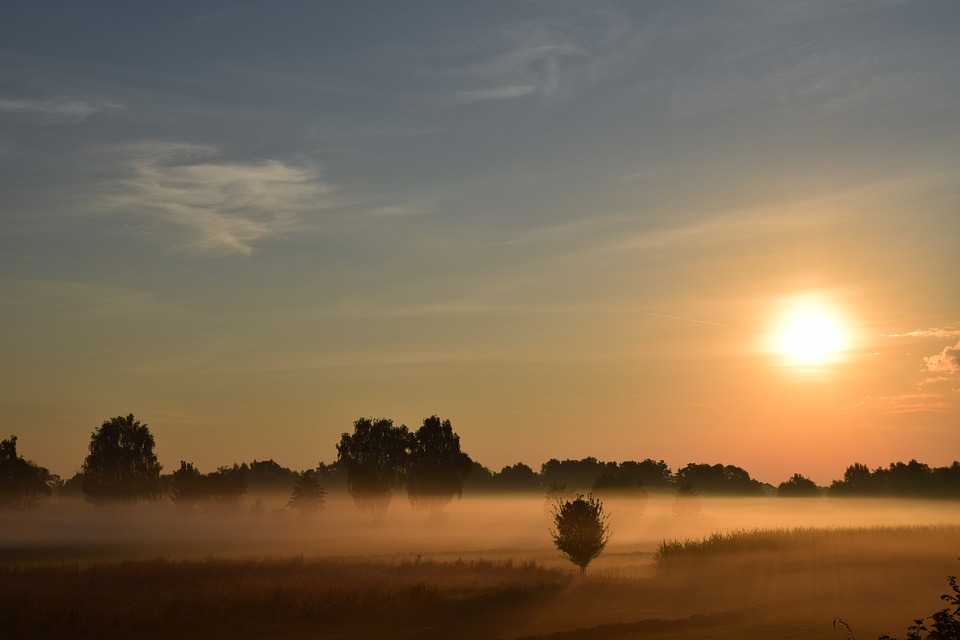
the sixth Sunday after Pentecost
July 12th, 2020
Today’s readings are:
Isaiah 55:10-13
Psalm 65:1-14
Romans 8:1-11
Matthew 13:1-9, 18-23
If you don’t have a Bible handy, click here to find these readings.
Today, I want to offer you not a sermon but a meditation. I want you to sit and think about something with me. The readings this morning are pretty much all about God’s love and the abundance of that love, and the freedom of that abundance. God’s love for us humans is offered with an open hand, scattered around with a sower throwing out seed. And we, as followers of God, should do the same.
But I want to ask you something else this morning, to come at these passages not from the rich, good soil in Jesus’ parable but from the hard and rocky ground. Now, I often ask you all to think of these beautiful, wonderful, holy times in your life – and it’s important to do so. It’s important to recognize God’s simple and daily acts of love, to turn our hearts to that outpouring not only in the tough times but in the normal times, too.
But I want to talk about those tough times this morning. I want you to imagine when you were the rocky ground, or where you were choked with weeds, or where you felt that others were coming in and snatching up those good things that you longed for. Imagine for a moment, if you will, the really troubling parts of your life. It’s okay to go back to them in your memory. God’s with you as you remember. Take some time and sit with them and God for a little.
Okay then, my next question is this: what changed? What changed for you to bring you out of these times? What scared away the birds, broke up the rocks, tilled the soil of your heart? The answer’s God, of course, but how did God work that change in you? Was it a change in circumstances? Was it another person? Was it a book you read or a sight you saw? What turned your hard and rocky heart into something fresh and new again? Think about that for a little.
We Christians live in miracles. We live in daily miracles and we live in miracles that need years or even a whole lifetime to accomplish. We are present when God changes death into life. What an amazing gift to be able to witness that, to be a part of it.
And I don’t know about you, but these miracles fill me with gratitude. I want to thank God for them. I want to thank the people who have been the bearers and the messengers of God’s love and forgiveness. I want to thank things that it sounds really weird to thank, like the Pacific Ocean, or the Black Hills in South Dakota and Wyoming, or the city of Kyoto in Japan – these things that for me have been messengers of God’s miracles. All these things have not just shown God’s love to me but have been the ways that God has reached down into the rockiest parts of my heart and broken those stones to pieces, then planted a seed I don’t think I deserve but have been given anyway. And all this births in me the deepest sense of gratitude. I hope that you have experienced this sense of gratitude as well.
How do we live that gratitude? How do we live in thanks for all the goodness, all the abundance, or the joy and hope and life that we have been given by God? Well, I mean, there’s the service of the Church, the ministries to the poor, the lonely, the destitute. There’s the Sacraments, living our Baptismal Covenant, in Reconciliation (which is the fancy word for Confession of Sins), in the Holy Eucharist.
But living a life of gratitude is not just doing these things, going through the motions, but in being within them, being moved by them and through them and with God in them. I mean, as a kid I learned pretty quick how to write a decent thank-you note to a relative for a birthday gift. I could write a bunch really quick without a second thought and without an ounce of gratitude. But when I really had to thank someone, I realized that there’s not really way to say thank you – there’s only living gratitude.
This is where we connect with God. Or, to say it better, this is where God comes so close to us: in how we live the gratitude of our gifts. For myself, the way I have chosen to live the gratitude for all those who have helped me – the teachers who have opened my eyes to the depth of literature, those authors who have written books that have helped me see God, those places in the world where I felt that I was walking side-by-side with Jesus Christ – the way I’ve said thank you is to teach. I want to show others these good things, to show them the depth and beauty of the world, of art, of our Scripture, our liturgy, our tradition. How about you? How are you – how can you live a life of thankfulness?
And this question isn’t just for you individually. Think about St. James, our church. We here have so much to be thankful for. We’re in a peaceful and beautiful part of the world. We’ve got this beautiful building here, this beautiful place to worship and be lifted to God’s presence. And, hey, we’ve got the natural world around us, from mountain to shore, where God is also present. And we have our traditions here, both those common to all Christians and those that are pretty particular to St. James. We have a healthy and honest community here that is St. James. How can we live all this that we have, how can we live our gifts thankfully? What does a church look like that lives, first and foremost, thankfully?




